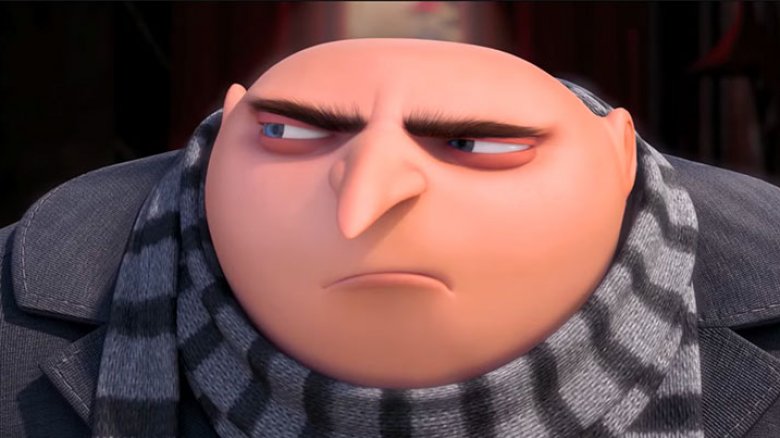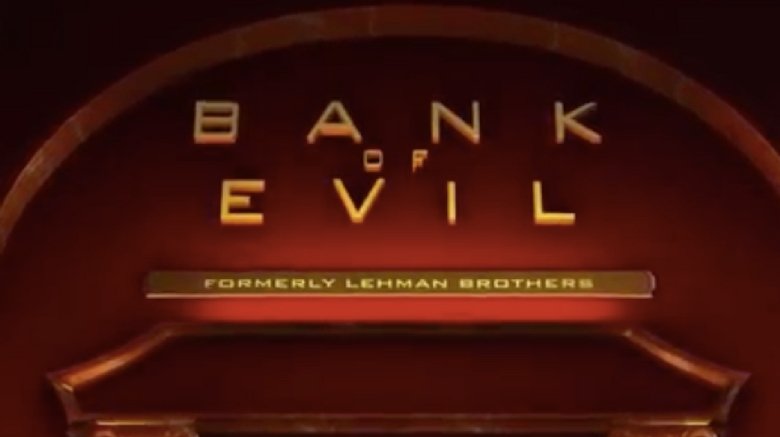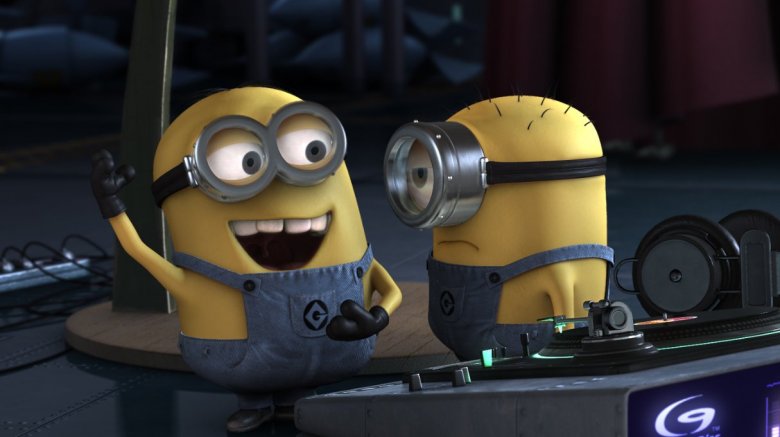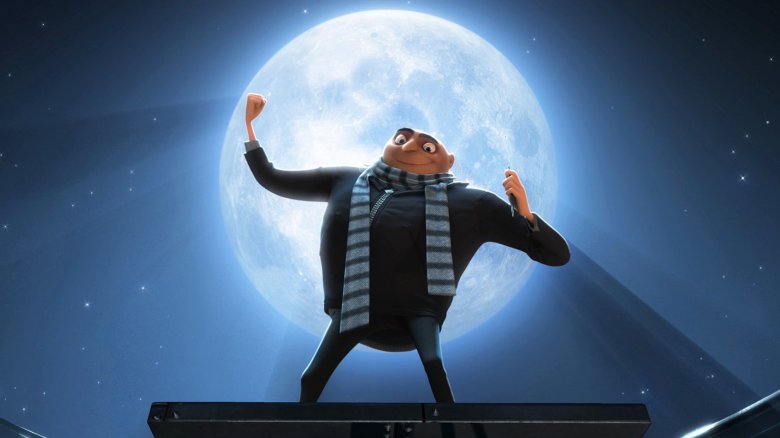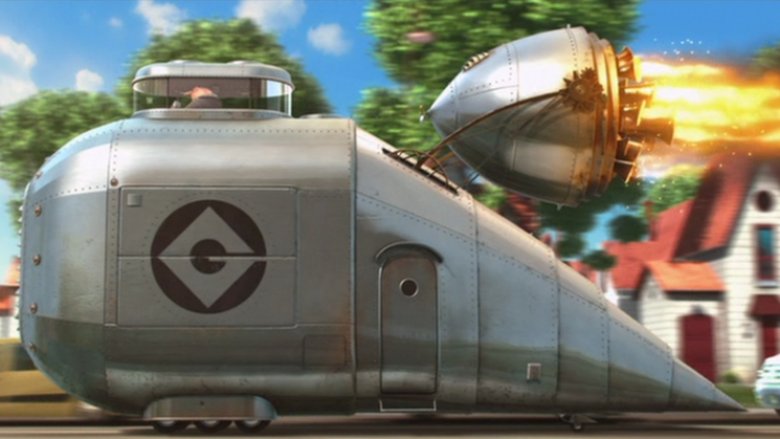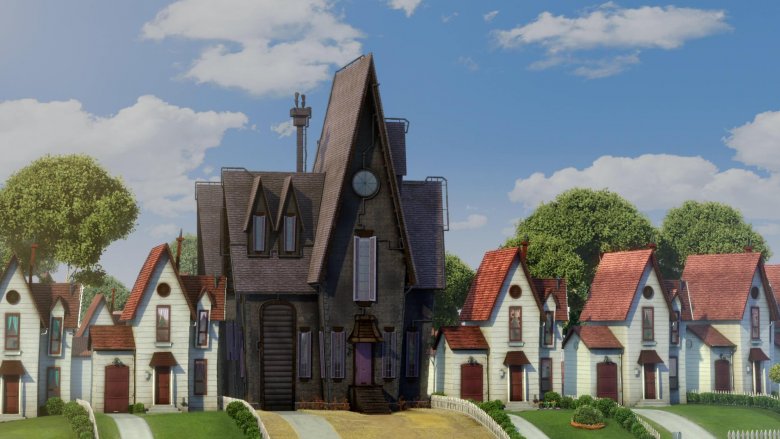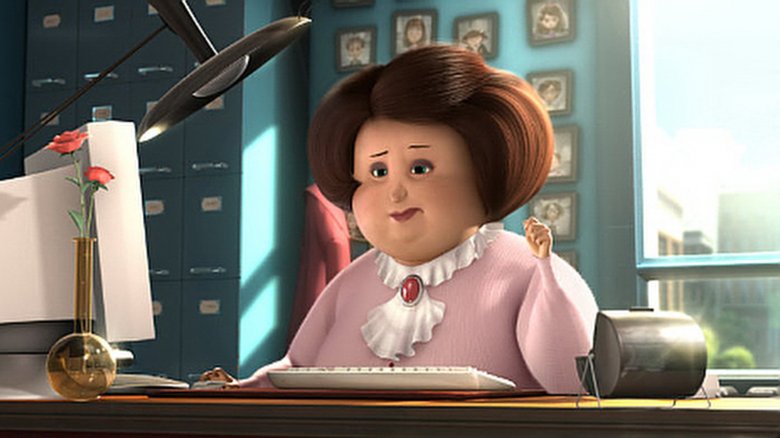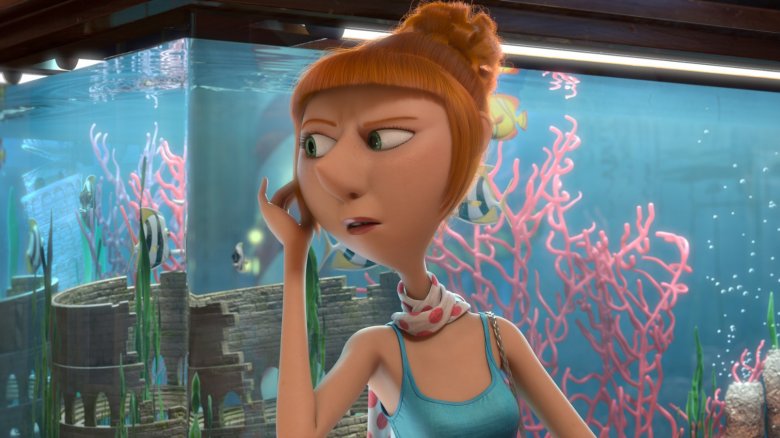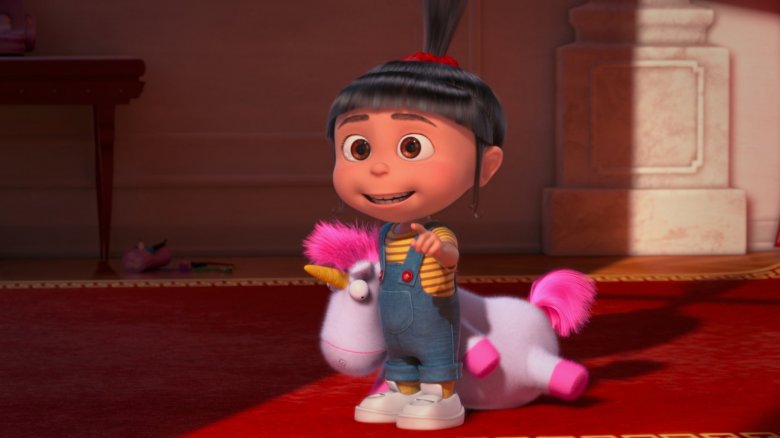Things About The Despicable Me Movies You Only Notice As An Adult
When you're a kid, the Despicable Me movies seem like a sweet example of how the impact of love and family can change a man from a villain to a hero. (Plus Minions.) But seen through older eyes, the movies look a little stranger, full of plot holes and questionable actions that should bug anyone over the age of 18. Here are some of the weird things about the Despicable Me movies that you only notice as an adult.
Gru does little to hide that he's a villain
Being a villain obviously puts you on the wrong side of the law. So at the start of the first film, it'd likely be beneficial for Gru to keep his status as one of the world's most wanted under wraps. However, he seems to put very little effort into hiding his villainous ways—in fact, he shows it off through the way he dresses, his car, and, most notably, his house, which drastically sets itself apart from the other buildings on the block. On top of all that, he also has a penchant for pulling out his weapons in public, something that could not only get him arrested but also makes it pretty obvious that he's got something not so normal going on. While keeping Gru's villainy out in public may fit with the over-the-top humor in the Despicable Me franchise, it doesn't make a ton of sense.
The Bank of Evil has some real life roots
Gru funded his villainy through loans from the Bank of Evil, a behemoth of a building complete with men getting crushed under its pillars. The bank is the epitome of nefarious—and if you watch closely, you can see that it has real-life roots. In tiny letters under the logo, you can read the words "Formerly Lehman Brothers," an apt and depressing comparison that will go right over any kid's head.
Gru should be better at handling children
When Gru first adopts the girls, he acts like he's absolutely clueless about what to do with them, not knowing how to feed them or how to childproof his very dangerous house from their prying hands. However, when you really think about it, Gru should be an expert at handling children by now, considering he's basically had them since he was a boy.
We're talking, of course, about the Minions. And sure, the little yellow guys may be a bit more adept at taking care of themselves, but developmentally, they're probably around the same scale as a 10-year-old, always getting into mischief they shouldn't and not thinking through the consequences of their actions. While Gru may not have been prepared for a child as young as Agnes, he should have been ready for anything Edith and Margo would throw at him, considering his history with his banana-loving sidekicks.
Gru's finances make no sense
As we see at the beginning of the first film, Gru isn't exactly the most impressive villain, which means he likely isn't bringing in much cash to help pay back those Bank of Evil loans—or even putting away much in terms of savings. Likely somewhere in his mid-40s, Gru's been engaging in villainy since he was a young boy; assuming he hasn't pulled off enough high-reward schemes to pay back his loans—as is set up at the beginning of the first film as well—why would the bank continue to lend him money all those years? He's clearly taken out a lot of cash to build his lab and pay the Minions and Dr. Nefario. He's only a cartoon, but Gru's financial situation is still extremely murky.
Gru's car insurance must be through the roof
Gru is an awful driver. Like, painfully awful. Every time he takes out his huge, gas-guzzling car (think about the environment, Gru!), he leaves a path of destruction in his wake. (He also literally kills a man in the first film while swerving off the road after Agnes squeals upon seeing Super Silly Fun Land.) While Gru is a villain who clearly doesn't give much thought to property destruction or the occasional death, he's also presumably an adult with a driver's license—and, in all likelihood, car insurance. With Gru's financial situation already questionable, it adds in a whole other layer to wonder about the sky-high premiums he must be paying for his terrible driving skills.
The city is probably not a fan of Gru's house
Gru likes to stand out, and that's clearly the case with his house, a hulking behemoth of depressing architecture plopped down right in the middle of typical suburbia. While every other house on Gru's block is the same, his is a huge eyesore, standing a couple of stories above the rest in a stark difference in color and style. This extends to his front yard, which has been left to die next to the manicured green lawns of his neighbors.
Adults know this just wouldn't fly. Gru's neighbors would grumble about having to look at his house, and anytime anyone wanted to sell their home, they'd complain about his mansion driving their property values down. How Gru got the zoning permits to build that home (complete with a huge underground lab, a much more dangerous endeavor than your typical basement) is nearly unfathomable, and the fact that he's been allowed to continue to live there all these years without the city pressuring him to change seems even more unlikely. (You can also add high property taxes to Gru's ever-increasing list of bills.)
Miss Hattie is actually awful
Everyone knows orphanage caretaker Miss Hattie is one of the villains in Despicable Me, but watching as an adult, it becomes apparent just how abominable she is. First off, Miss Hattie seems to finance her business by sending her charges out on the street alone to sell cookies door to door, a dangerous endeavor which amounts to child labor. When kids don't meet her quotas, she literally puts them in a cardboard box—which she calls the Box of Shame—and keeps them there for the weekend, which is just straight-up child abuse. On top of all of that, she lets a suspicious man adopt Agnes, Edith, and Margo because he flirts with her. This woman has no business being in charge of children.
Kristen Wiig made a big role switch for the sequel
Saturday Night Live vet Kristen Wiig has a wonderfully expressive voice, so it makes sense that Illumination would choose her to voice one of the most prominent adult female characters in Despicable Me: the girls' evil caretaker, Miss Hattie. That isn't the only major part Wiig has voiced in the Despicable Me universe, however—she was brought back for the sequel as Lucy, the super-spy who becomes Gru's girlfriend and then wife. Wiig reprises the role again in Despicable Me 3, and, although we're definitely bigger fans of Lucy than Miss Hattie, it's still hard not to hear the similarity between the two characters.
Agnes is literally heartbreaking
If you're watching the Despicable Me movies a kid, Agnes is a cute, unicorn-loving little girl, but as an adult, you start to realize just how heartbreaking she is. Some of her lines are actually tear-jerking, especially when she's looking to be adopted at the beginning of Despicable Me, and when she's looking for a mother throughout Despicable Me 2. You try not crying as an adult when she gives her speech at Lucy and Gru's wedding at the end of the second movie—it's not easy to keep your eyes dry.
The Minion economy doesn't make much sense
Gru pays the Minions, as he reveals at the beginning of the first movie when he says they won't get raises, but the Minion economy makes little sense. As shown in the Minions spinoff movie, the creatures go to work for people based on loyalty and the excitement of their crimes, and they've stuck with Gru even throughout some of his lower points as a supervillain. However, theirs is still clearly a capitalist enterprise, and they're looking for dough for what they do— but for what?
They appear to get free housing and food while they're living with Gru, and it doesn't seem like they often go out into the real world (as suggested in the first movie, when they're shocked by the size of the store they travel to to buy Agnes a new unicorn toy). Are they simply saving their funds for the sake of having them? And if another supervillain offered to pay them more, would they leave Gru? The Minions' lives make about as much sense as their nearly incomprehensible language.
